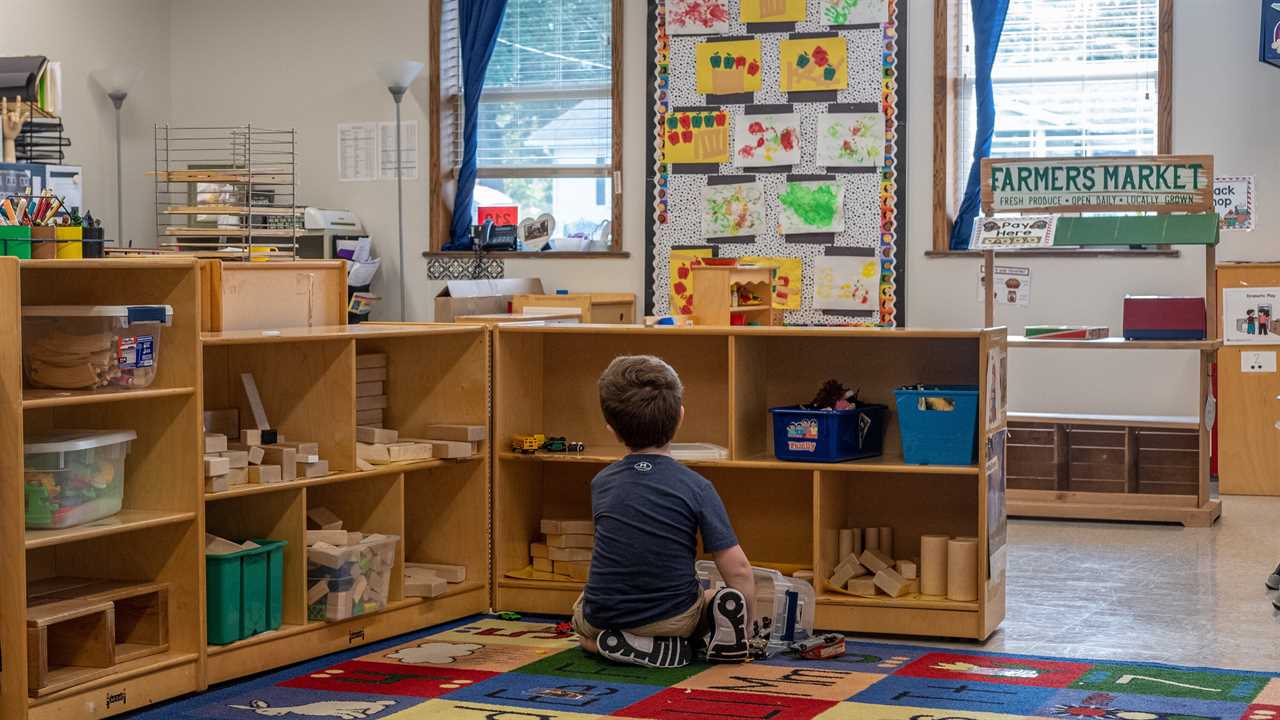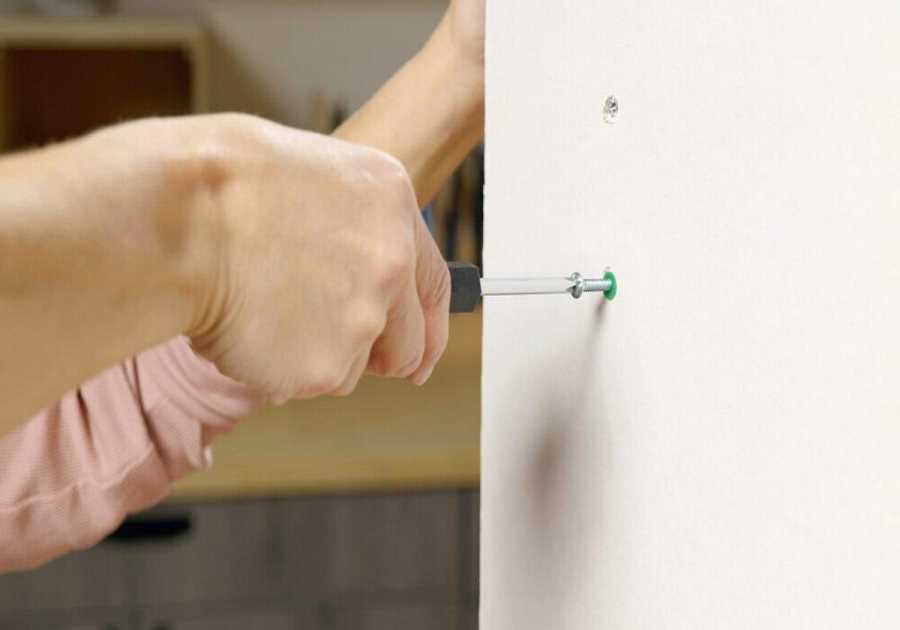
Universal, free preschool is one of the more popular measures in President Biden’s social safety net bill, at least according to polls.
It also appears to be one of the most palatable elements of the bill for Senator Joe Manchin, a key moderate Democrat who has insisted on drastically cutting the bill’s $3.5 trillion price tag. While Mr. Manchin has repeatedly raised concerns about spending on paid leave, child care and child tax credits, he has said he is “all in” on the goal of universal pre-K.
That may be because all 4-year-olds in his own state, West Virginia, already have access to free public preschool. Indeed, the West Virginia program, considered a national model, was partially rolled out during Mr. Manchin’s time as governor, from 2005 to 2010, with bipartisan support.
But the state’s program also shows why rolling out universal pre-K nationally could be bumpy. West Virginia faced challenges with financing, staffing and locating physical space — and it took not just years, but a decade, to establish. There is also disagreement about the program’s impact on the state’s historically low academic performance.
Policymakers say preschool has become an accepted part of West Virginia’s public education system. More than two-thirds of 4-year-olds enrolled last year.
The program “is a poster child for what people say they want to do,” said W. Steven Barnett, a director at the National Institute for Early Education Research.
West Virginia has some of the highest child and family poverty rates in the nation, and one of the lowest median household incomes. But the program’s availability to all families, regardless of the ability to pay, helped make it popular.
That is because even professional families in the state, which is mostly rural, had trouble finding quality preschool education.
Lloyd G. Jackson II, a former Democratic state senator who played a crucial role in crafting the program, recalled that his wife would drive two hours per day to take their sons, now in their 30s, to preschool.
“Of 55 counties in West Virginia, my guess is that in two-thirds there would have been no access — no matter how much money you had,” Mr. Jackson said.
That lack of preschools contributed to the long rollout. The State Legislature enacted universal access to pre-K in 2002; the program did not take full effect until 10 years later.
Other states share this problem. About 60 percent of rural Americans live in communities considered “child care deserts” because of shortages of licensed child care and pre-K seats.
“It’s hard for politicians to say they put us on a 20-year path, but that really is the lesson from places like West Virginia,” Professor Barnett said. “At the current rate, it would be 100 to 150 years until we have universal preschool. If you did it in 50 years that would be a huge acceleration. If you did it in 20, that would be amazing.”
In the past few years, West Virginia’s Legislature, which has shifted from Democratic to Republican control, has placed less emphasis on growing the program — to serve all 3-year olds, for example, as the Biden plan would do — and more on priorities such as establishing charter schools and education savings accounts.
That is why advocates hope to seize on Washington’s current interest in preschool. But other experts on early childhood education have warned that the president’s plan to spend money on wealthier families takes away from the ability to improve programs for students with greater needs — through paying teachers more, for example, or extending the school day to better match parents’ work schedules.
And some question pouring money into pre-K at all, pointing out that the years from birth to age 3 are perhaps more crucial for brain development and closing future academic achievement gaps.
“You’re not going to find a brain researcher in the country who thinks that going to school when you’re 4 instead of 5 is going to be a game changer for kids,” said Katharine B. Stevens, an early childhood researcher formerly affiliated with the American Enterprise Institute, a center-right think tank.
The dollars would be better spent, she said, on improving prenatal care, helping mothers develop their parenting skills and providing quality child care to disadvantaged infants and toddlers.
Kindergarten students who had participated in West Virginia’s preschool program did demonstrate more sophisticated math, literacy and language skills, according to a 2018 study. But the case for longer-range academic benefits is harder to make.
Adam Kissel, a senior fellow at the Cardinal Institute for West Virginia Policy, a conservative think tank, said the existence of universal pre-K in the state had not prevented West Virginia from demonstrating continued low fourth-grade performance in reading and math.
But West Virginia educators pointed to other benefits of the state’s approach to pre-K. One of the program’s unusual features is that it serves children who are eligible for Head Start, the federal preschool program for low-income families, alongside students from middle-class and affluent families, often within the same classrooms.
Research shows that socioeconomic integration offers its own social and academic benefits for children.
At Brookhaven Elementary School in Morgantown, five of Allison Stump’s 13 preschool students qualify for Head Start and receive extra support. But all her students benefit from the program’s play-based, hands-on curriculum, and the opportunity to be screened early for learning and developmental disabilities, Ms. Stump said.
By the time they get to kindergarten, these children will be accustomed to the routines of the classroom. Ms. Stump noted that her job requires in-depth training, lesson preparation — and endless amounts of energy.
“It’s very time-consuming,” she said. “There’s not a lot of sitting down.”
West Virginia’s program was funded without raising taxes; much of the state has lost school-age population over recent years, meaning dollars could more easily be reallocated to pre-K.
While many districts across the country have lost students during the coronavirus pandemic, a preschool expansion of the scope President Biden envisions would be far more complex to finance. His plan for pre-K, child care, paid leave and other family supports would partially be paid for by raising taxes on the wealthy. Like Medicaid expansion, it would also require states to contribute dollars, which some may be unwilling to do.
And any national expansion would face the challenge of finding places to put children. Some West Virginia students are offered preschool seats in child care centers, where workers may earn far less than pre-K teachers who work in elementary schools.
Finding and training enough teachers was an issue in West Virginia, and one reason it took a full decade to roll the program out. In New York City, with its wealth of workers and educational infrastructure, Mayor Bill de Blasio managed to kick start his universal pre-K plan in less than a year. But current labor shortages could make that harder.
Quality teaching makes a difference. Ms. Stump, 26, has a master’s degree and began her career with more than 1,000 hours of student teaching experience.
That training has been crucial for her ability to work with children like Walker Garver, who has autism spectrum disorder and is nonverbal. She is teaching him sign language and social skills.
Walker’s mother, Carrie Garver, said her son would likely not be in preschool at all if not for the public program, since many private schools do not serve children like him. And the fact that Walker has a place to go during the day means she can pursue her graduate degree.
Free pre-K has been “life changing,” Ms. Garver said. “And for the child, it’s everything.”
Title: In Senator Manchin’s Home State, Universal Pre-K Is Already a Reality
Sourced From: www.nytimes.com/2021/10/16/education/joe-manchin-universal-pre-k.html
Published Date: Sat, 16 Oct 2021 07:00:07 +0000
Did you miss our previous article...
https://rsssuperfeeds.com/viral-news/they-refused-to-get-vaccinated-here-are-the-reasons-they-changed-their-minds






